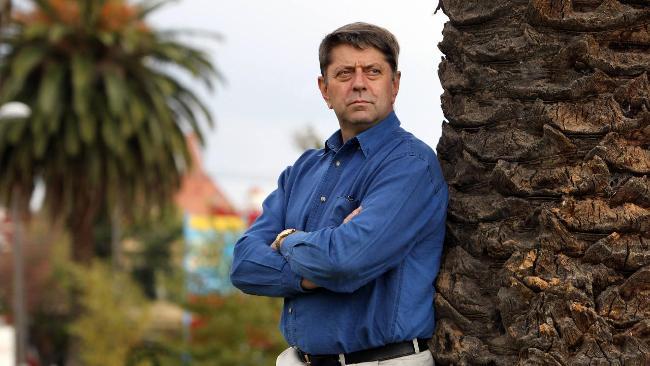Victorian police claim laws broken in covert op against top brass
A SENIOR serving Victoria Police officer has sworn an affidavit alleging that laws were broken in a secret interception of telephone conversations during a controversial covert operation.

A SENIOR serving Victoria Police officer has sworn an affidavit alleging that laws were broken in a secret interception of telephone conversations during a controversial covert operation involving the state's Office of Police Integrity and the police Ethical Standards Department.
The officer's six-page affidavit, provided to The Australian yesterday after being witnessed by a Melbourne lawyer, alleges that a number of phone taps were illegal and that a Victoria Police expert on law and procedures in intercepts, who was aware of the conduct, was extremely concerned.
The Australian has separately been told by a former OPI member that illegal phone intercepts occurred at the OPI in 2007 and that this caused great concern for a number of staff who understood the requirements of the legislation.
The OPI was given the power to tap telephones at the end of 2006.
The allegedly illegal conduct occurred during the OPI's operations in 2007 that led to the resignations and attempted prosecutions for perjury of assistant commissioner Noel Ashby and Police Association secretary Paul Mullett.
In June last year, the Director of Public Prosecutions withdrew charges against Mr Mullett, who had already been committed for trial. Mr Mullett had been a strong critic of the OPI and the then Victoria Police commissioner Christine Nixon prior to and during the launch of the covert operations.
In February, Mr Ashby was acquitted of all charges when the Supreme Court ruled that the OPI had failed to properly swear its delegate, Murray Wilcox QC, rendering all the evidence from his hearings useless.
Mr Mullett and Mr Ashby have accused the OPI of abusing their powers to tap their telephones to deliberately orchestrate their downfall. They have called for an apology and a public inquiry into the OPI. Police Association assistant secretary Bruce McKenzie, who said police believed some members of the OPI had acted unlawfully in a number of cases, has called for a broad royal commission in Victoria to investigate public sector corruption, as well as the motives of the OPI in its Ashby-Mullett probe.
An OPI spokesman last night said after consulting the agency's director, Michael Strong, who was not at the OPI in 2007: "It is a bit hard to comment until we know the details."
The affidavit provided to The Australian is signed by a Victoria Police officer who received ongoing information from a concerned officer closely involved in the operations in which Mr Mullett, Mr Ashby and other people had their phones tapped. The intercepts began after police received a tip-off that another serving officer was being implicated for assisting in a murder.
The affidavit, supported by a typed file note from 2008, states that the evidentiary material used to justify tapping the telephone of Mr Ashby and others was "clearly deficient" and that warrants should not have been granted.
After further scrutiny and the advice of a police expert in 2007 it was "decided that the warrants that the OPI were using were based on such deficient affidavits that the whole process should be started again".
The officers involved were "concerned that they did not wish to be in charge of an operation monitoring calls, when they knew that the affidavit material was so deficient, albeit someone had decided to grant a warrant".
The police officer alleges in his affidavit that there were also "unlawful disclosures" of material at a high level from the telephone intercepts.
The affidavit alleges that the decision to suspend Mr Mullett, after public hearings of the OPI in November 2007 released his covertly recorded telephone conversations with Mr Ashby and others, was made by an assistant commissioner of police despite advice "that there was no evidence upon which Mr Mullett should be suspended".
"They told (the assistant commissioner) that in their opinion, Mr Mullett had not committed any criminal offences by listening to information provided to him by Noel Ashby. There was no offence of perverting the course of justice as the same was never proven."
The affidavit also alleges that a senior representative of the federal Attorney-General was concerned by the OPI's release of the telephone intercept to the media during the course of the OPI hearings.
Mr Mullett said last night that if the allegations in the affidavit were true, the conduct had been "outrageous". "It supports my view that there were unlawful practices in the investigation," he said. "It appears to be evidence that vindicates my position that there should be an open inquiry."



